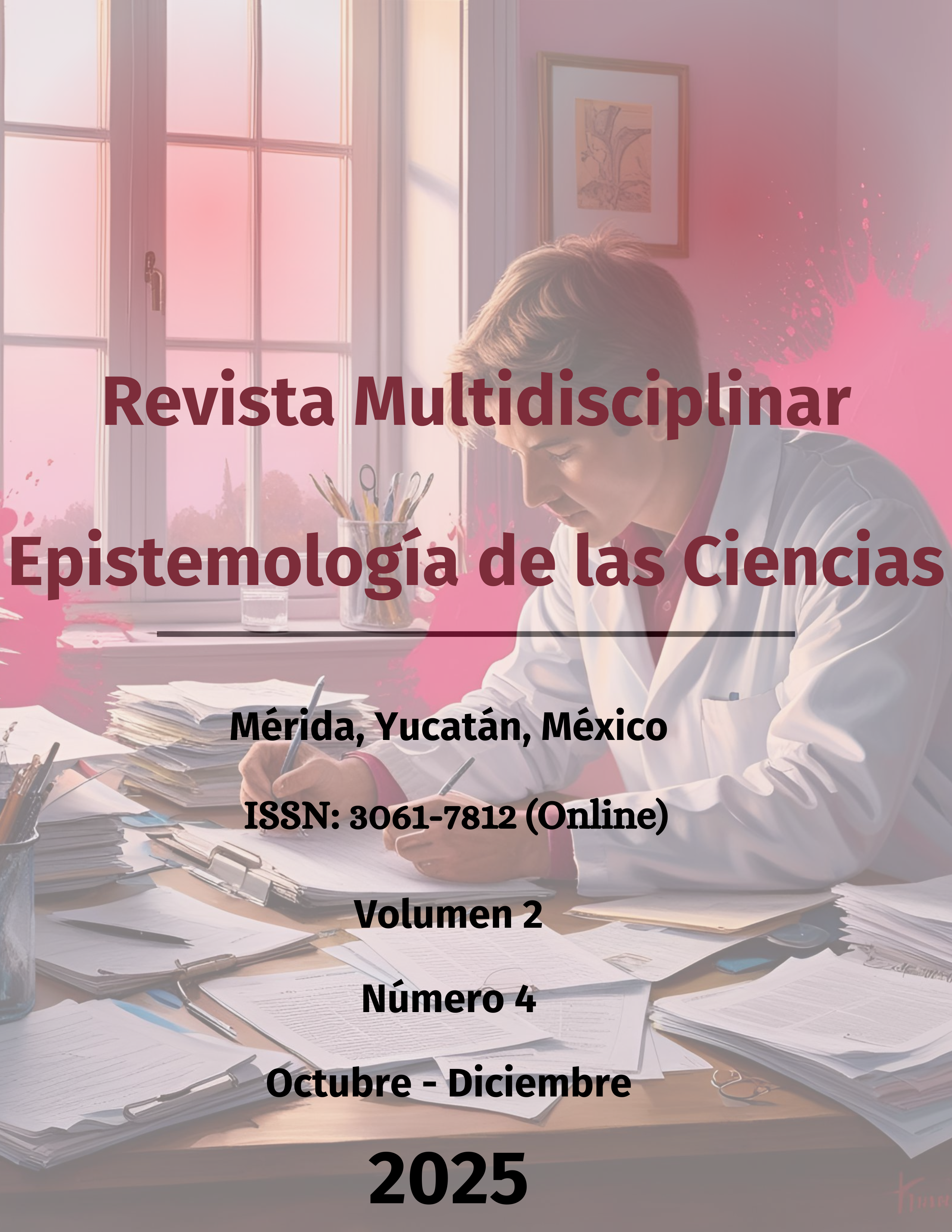Effectiveness of an emotional intelligence program to improve performance and coexistence in the classroom
DOI:
https://doi.org/10.71112/jmhj8n24Keywords:
emotional intelligence, academic performance, school well-being, socio-emotional learning, classroom climateAbstract
This study evaluated the effectiveness of an emotional intelligence (EI) program in improving academic performance and school well-being among upper elementary and high school students at a public institution. A quasi-experimental design was used with an experimental and a comparison group, using validated instruments such as the EQ-i: YV and the School Climate Scale (CES). The intervention, developed over 12 weeks, included sessions on the perception, regulation, and practical application of emotions in the school context. The results showed significant increases in the academic performance of students in the experimental group compared to the comparison group, as well as improvements in group cohesion, conflict resolution, and the emotional climate of the classroom. These findings support the idea that EI-based programs not only contribute to cognitive learning but also strengthen students' social and emotional well-being. The systematic integration of SEL programs into the school curriculum and teacher training is recommended to ensure the sustainability of their long-term effects.
Downloads
References
Alarcón-Espinoza, M., Samper-Garcia, P., & Anguera, M. T. (2023). Systematic observation of emotional regulation in the school classroom: A contribution to the mental health of new generations. International Journal of Environmental Research and Public Health, 20(8), 5595. https://doi.org/10.3390/ijerph20085595 DOI: https://doi.org/10.3390/ijerph20085595
Aygün, H. E., & Taşkın, Ş. (2022). The effect of social-emotional learning program on students’ academic achievement and classroom climate. Pegem Journal of Education and Instruction, 11(1), 51–70. https://doi.org/10.52963/PERR_Biruni_V11.N1.05 DOI: https://doi.org/10.52963/PERR_Biruni_V11.N1.05
Bisquerra, R. (2009). Educación emocional y competencias básicas para la vida. Wolters Kluwer. https://revistas.uned.es/index.php/educacionXX1/article/view/300
Castillo-Gualda, R., Cabello, R., Giménez-Dasí, M., & Fernández-Berrocal, P. (2019). A school-based emotional education program for adolescents: Effects on well-being and academic achievement. Frontiers in Psychology, 10, 1528. https://doi.org/10.3389/fpsyg.2019.01528 DOI: https://doi.org/10.3389/fpsyg.2019.01528
Cipriano, C., et al. (2023). The state of evidence for social and emotional learning: A contemporary meta-analysis of universal school-based SEL interventions. Child Development, 94(5), 1382–1412. https://doi.org/10.1111/cdev.13968 DOI: https://doi.org/10.1111/cdev.13968
Cohen, L., Manion, L., & Morrison, K. (2018). Research methods in education (8th ed.). Routledge. https://doi.org/10.4324/9781315456539 DOI: https://doi.org/10.4324/9781315456539
Cook, T. D., & Campbell, D. T. (1979). Quasi-experimentation: Design and analysis issues for field settings. Houghton Mifflin.
Creswell, J. W. (2014). Research design: Qualitative, quantitative, and mixed methods approaches (4th ed.). SAGE Publications. https://www.worldcat.org/title/861207236
Díaz-Vargas, C., Tapia-Figueroa, A., Valdebenito-Villalobos, J., et al. (2023). Academic performance according to school coexistence indices in students from public schools in the south of Chile. Behavioral Sciences, 13(2), 154. https://doi.org/10.3390/bs13020154 DOI: https://doi.org/10.3390/bs13020154
Domitrovich, C. E., Durlak, J. A., Staley, K. C., & Weissberg, R. P. (2017). Social-emotional competence: An essential factor for academic success. Future of Children, 27(1), 21–40. https://doi.org/10.1353/foc.2017.0002 DOI: https://doi.org/10.1353/foc.2017.0002
Durlak, J. A., Weissberg, R. P., Dymnicki, A. B., Taylor, R. D., & Schellinger, K. B. (2011). The impact of enhancing students’ social and emotional learning: A meta-analysis of school-based universal interventions. Child Development, 82(1), 405–432. https://doi.org/10.1111/j.1467-8624.2010.01564.x DOI: https://doi.org/10.1111/j.1467-8624.2010.01564.x
Extremera, N., & Fernández-Berrocal, P. (2004). The role of emotional intelligence in academic success. Psicothema, 16(2), 263–267.
Fernández-Berrocal, P., Extremera, N., & Ramos, N. (2004). Validity and reliability of the Spanish modified version of the Trait Meta-Mood Scale. Psychological Reports, 94(3_suppl), 751–755. DOI: https://doi.org/10.2466/pr0.94.3.751-755
Filella-Guiu, G., Pérez-Escoda, N., Agulló, M. J., & Oriol, X. (2019). Implementation of the Emotional Education Program in primary schools: Effects on emotional skills and academic performance. Frontiers in Psychology, 10, 1537. https://doi.org/10.3389/fpsyg.2019.01537 DOI: https://doi.org/10.3389/fpsyg.2019.01537
Goleman, D. (1995). Emotional intelligence: Why it can matter more than IQ. Bantam Books.
Hernández-Sampieri, R., Fernández-Collado, C., & Baptista-Lucio, P. (2014). Metodología de la investigación (6.ª ed.). McGraw-Hill.
Koç, S., Altınay, F., Koç, A., Altınay, Z., & Dagli, G. (2024). Cooperation of emotional intelligence and social activities in education: Effects on school culture and value acquisition. Sustainability, 16(14), 6022. https://doi.org/10.3390/su16146022 DOI: https://doi.org/10.3390/su16146022
MacCann, C., Jiang, Y., Brown, L. E. R., Double, K. S., Bucich, M., & Minbashian, A. (2020). Emotional intelligence predicts academic performance: A meta-analysis. Psychological Bulletin, 146(2), 150–186. https://doi.org/10.1037/bul0000219 DOI: https://doi.org/10.1037/bul0000219
Martínez-Abad, F., & Rodríguez-Conde, M. J. (2023). The impact of emotional intelligence training on collaborative learning and school coexistence. Sustainability, 15(5), 4217. https://doi.org/10.3390/su15054217 DOI: https://doi.org/10.3390/su15054217
Mayer, J. D., Salovey, P., & Caruso, D. R. (2004). Emotional intelligence: Theory, findings, and implications. Psychological Inquiry, 15(3), 197–215. https://doi.org/10.1207/s15327965pli1503_02 DOI: https://doi.org/10.1207/s15327965pli1503_02
Murillo, F. J., & Hernández-Castilla, R. (2011). Una propuesta de cuestionario para evaluar la convivencia escolar. Revista Iberoamericana sobre Calidad, Eficacia y Cambio en Educación, 9(1), 7–29.
Raimundo, R., Oliveira, S., Roberto, M. S., & Marques-Pinto, A. (2024). Effects of a social–emotional learning intervention on social–emotional competencies and behavioral problems in elementary students amid COVID-19. International Journal of Environmental Research and Public Health, 21(9), 1223. https://doi.org/10.3390/ijerph21091223 DOI: https://doi.org/10.3390/ijerph21091223
Rueda, M. R., Caballero, J. A., & Delgado, P. (2021). Socio-emotional interventions for adolescent well-being: A practical framework. Child Development Perspectives, 15(4), 243–251. https://doi.org/10.1111/cdep.12432 DOI: https://doi.org/10.1111/cdep.12432
Salovey, P., & Mayer, J. D. (1990). Emotional intelligence. Imagination, Cognition and Personality, 9(3), 185–211. https://doi.org/10.2190/DUGG-P24E-52WK-6CDG DOI: https://doi.org/10.2190/DUGG-P24E-52WK-6CDG
Schonert-Reichl, K. A., & Cipriano, C. (2022). Promoting social and emotional competence in schools: A global perspective. International Journal of Emotional Education, 14(1), 5–22. https://www.um.edu.mt/library/oar/handle/123456789/97538
Shalev, M., & Gidalevich, S. (2024). Social emotional learning in teacher education: Biographical narrative as a method for professional development. Education Sciences, 14(8), 821. https://doi.org/10.3390/educsci14080821 DOI: https://doi.org/10.3390/educsci14080821
Taibolatov, K. M., Pfeyfer, N. E., Burdina, E. I., Kudysheva, A. A., & Bolatov, A. K. (2024). The role of emotional intelligence on academic motivation of schoolchildren. Frontiers in Education, 9, 1265946. https://doi.org/10.3389/feduc.2024.1265946 DOI: https://doi.org/10.3389/feduc.2024.1265946
Zinsser, K. M., Denham, S. A., Curby, T. W., & Shewark, E. A. (2021). Supporting teachers’ social-emotional competence: A foundation for social-emotional learning in early childhood education. Early Childhood Research Quarterly, 56, 67–80. https://doi.org/10.1016/j.ecresq.2021.03.001 DOI: https://doi.org/10.1016/j.ecresq.2021.03.001
Downloads
Published
Issue
Section
License
Copyright (c) 2025 Multidisciplinary Journal Epistemology of the Sciences

This work is licensed under a Creative Commons Attribution 4.0 International License.











